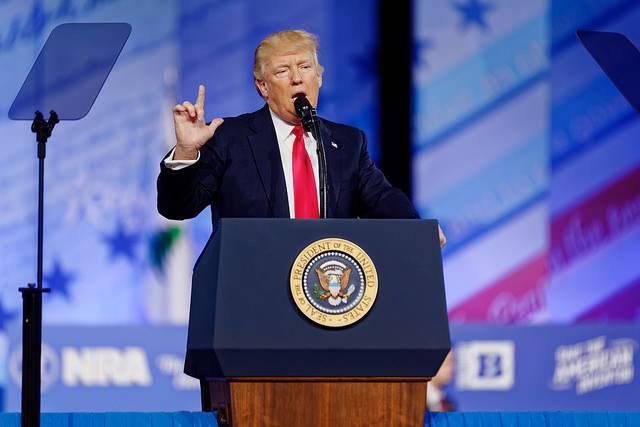
On Friday, U.S. President Donald Trump added a new layer to his self-defined 'pro-business' list of executive orders: a rule that equips every agency with its own cost-cutting oversight watchdogs to whittle down rules that seem overly complex or burdensome for U.S. commerce.
The order calls for “task [forces that] will make recommendations to repeal or simplify existing regulations,” Trump said.
And the starting point for making those decisions is pretty simple, the president argued. “Every regulation should have to pass a simple test: Does it make life better or safer for American workers or consumers?”
Trump, who unveiled the latest order at the Conservative Political Action Conference before signing it in the Oval Office, boldly stated: “Regulations are crushing our economy.”
The signing was attended by prominent American business leaders, including Alex Gorsky of Johnson & Johnson, Andrew Liveris of the Dow Chemical Co., Gregory Hayes of United Technologies and Marillyn Hewson of Lockheed Martin.
The new order come amid revelations of growth in sales for U.S. businesses. Fourth-quarter results for both Johnson & Johnson and Dow Chemical reaffirmed a “Goldilocks economy,” as Kimberly Amadeo, president of WorldMoneyWatch, refers to the country’s economic uptick last year.
But Trump said the order that adds one more source of expense for agencies is necessary.
“This executive order is one of many ways we’re going to get real results when it comes to removing job-killing regulations and unleashing economic opportunity.”
According to the order, federal agencies have 60 days to come up with a “regulatory reform officer” (RRO) who will “oversee the implementation of regulatory reform initiatives and policies to ensure that agencies effectively carry out regulatory reforms.” The task force will be responsible for reviewing regulations and identifying regulations “for repeal or modification.” One of the tasks of the oversight committee will be to identify regulations that “eliminate jobs or inhibit job creation."
The order doesn’t explain how cost-cutting task forces will work when it comes consumer safety issues. Will reducing regulations implemented by the U.S. Department of Agriculture, for example, make it harder to protect consumers from potential food-borne bacteria? The 2014 Heidelberg salmonella outbreak at Foster Farms took the better part of a year to address due to the breadth of the infection. Equally, how will decreasing regulatory oversight incentivize research into toxic substances to which consumers may indirectly be exposed? And what if those eliminated regulations actually lead to a loss of jobs?
Obviously much is unknowns at this point as to the implications of this latest order. American businesses and the economy will just have to wait to find out.
Image credit: Flickr/Michael Vadon
Jan Lee is a former news editor and award-winning editorial writer whose non-fiction and fiction have been published in the U.S., Canada, Mexico, the U.K. and Australia. Her articles and posts can be found on TriplePundit, JustMeans, and her blog, The Multicultural Jew, as well as other publications. She currently splits her residence between the city of Vancouver, British Columbia and the rural farmlands of Idaho.














